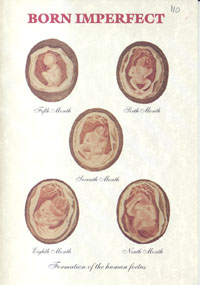Sign up to our newsletter Subscribe
Establishing the Economic Value of Carbon-Minimal Inhalers

The area of genetics in relation to hereditary disease has become an important aspect of medical practice with potentially far-reaching ramifications. We all inherit many features from our parents such as eye colour, hair colour, facial characteristics and even height and build to…
The area of genetics in relation to hereditary disease has become an important aspect of medical practice with potentially far-reaching ramifications. We all inherit many features from our parents such as eye colour, hair colour, facial characteristics and even height and build to some extent. However, we may also inherit less desirable traits such as hereditary disease. Genetic counselling at its most fundamental level is aimed at helping couples make an informed decision. Where they understand the risks the great majority of couples will tend towards the prevention of the birth of a child with an inherited disease, especially where the disease is severe and seriously limiting (RCP London, 1989).
Progressively infectious and nutritional diseases have been effectively controlled or eliminated in the Western world and poor social and environmental conditions ameliorated. Inevitably, and in contrast, genetic disease has not shared this improvement and hence has become a major problem. Genetic diseases have thus become relatively more important and are now, especially among children, a major cause of hospital admission, disability and mortality. The following information may demonstrate this point: in 1940 for every one child who died from a genetic disease six children died from infectious diarrhoea; whereas in 1980 seven children died from a genetic disease for every one child who died from infectious diarrhoea (Garver, Marchese 1986). The same type of comparison could be made for a number of infectious ailments which are no longer the threat to human life that they once were.
Rapid progress in the development of new techniques for diagnosis of disease carriers, prenatal diagnosis, the cloning of disease genes and the emergence of gene therapy show how worthwhile the fields of enquiry into hereditary disease and genetic counselling, screening and therapy have become. Any study of this type should involve consideration of the controversial and contentious issues inherent in this subject which raises many practical, ethical and religious dilemmas. Genetic counselling has implications for economic costs to the health service, the community and affected people’s families as well as for the possible reduction in personal suffering and pain to the affected individual and the burden of care to their families which is often financially draining and emotionally and physically exhausting.
West, R.
(1993) Born Imperfect: The role of genetic disease. OHE Series on Health. Available from https://www.ohe.org/publications/born-imperfect-role-genetic-disease/